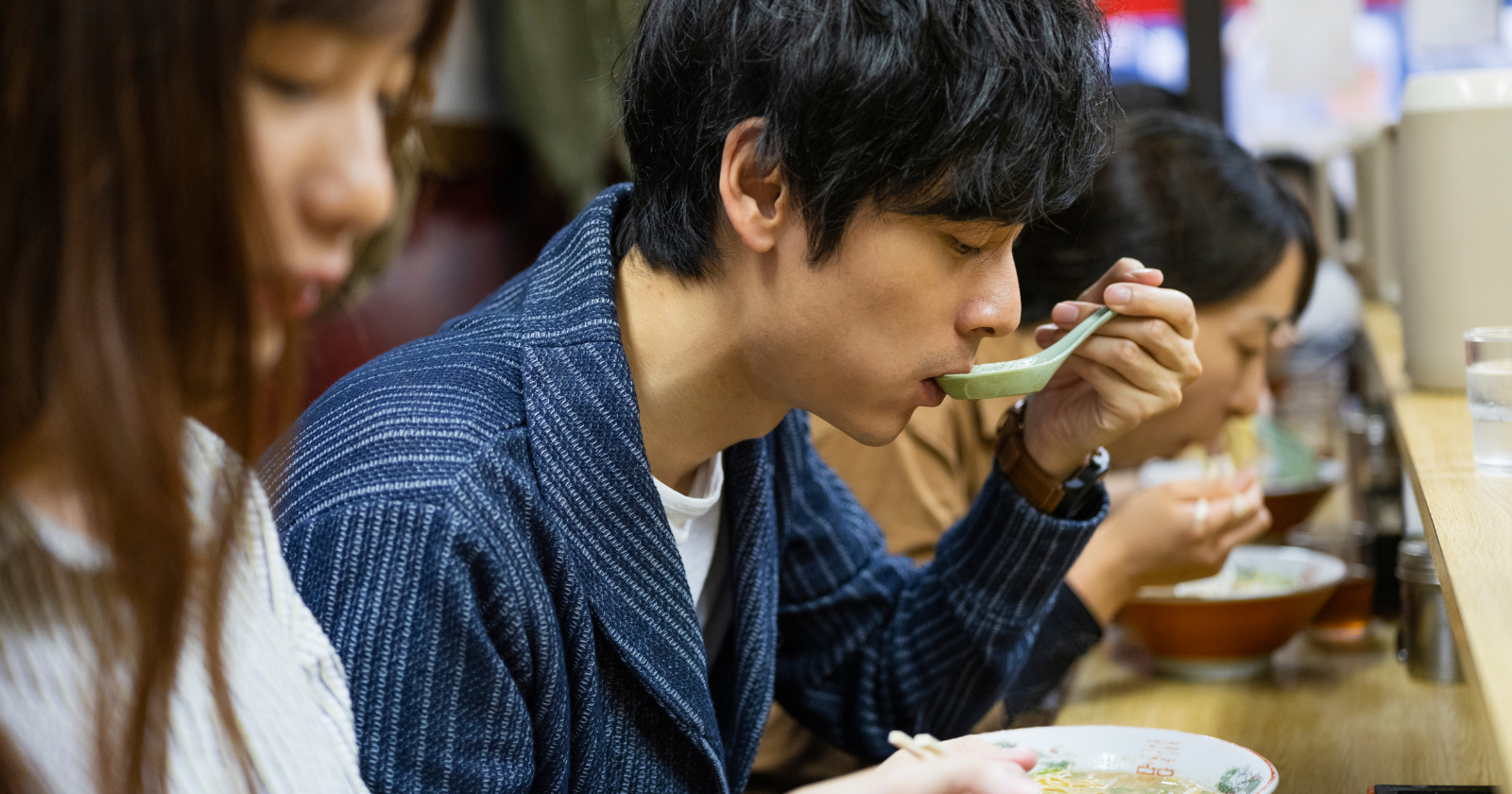If you’ve ever been to Japan, you know it’s one of those places that completely rewires the way you see everyday life.
Even if you think you’re well-traveled, Japan has a knack for surprising you in the smallest, most delightful ways.
From its spotless streets to its quiet trains, the country runs on a set of social habits and cultural codes that can feel downright alien to newcomers, yet deeply inspiring.
After my first trip to Tokyo and Osaka, I walked away not just with hundreds of photos and too many convenience store snacks, but with a few life lessons that still stick with me today.
Here are eight things the Japanese do that leave first-time visitors absolutely fascinated.
1) They make silence feel natural
If you’ve ever taken public transport in Japan, you’ll notice something almost eerie at first: the silence.
No loud phone calls. No booming laughter. No music leaking from someone’s headphones.
Just the quiet hum of the train and the polite rustle of pages turning.
In Japan, silence isn’t awkward. It’s respectful. It shows awareness of the people around you.
Commuting isn’t a social experience; it’s a time for peace and thought.
Coming from a world where every space seems filled with chatter or background noise, that calm can be surprisingly soothing.
It’s like being granted permission to switch off the social noise and just be present.
There’s something beautiful about that collective respect for quiet.
It reminds you how much energy we waste trying to fill silence that doesn’t need to be filled.
2) They bow constantly
You’ll see bowing everywhere in Japan: when greeting someone, saying thank you, apologizing, or even just passing a coworker in the hallway.
At first, you might feel awkward.
You’ll find yourself bowing too deeply or too often, unsure of the “rules.”
But soon you realize it’s not about rules at all.
It’s about humility.
Bowing is Japan’s way of saying, “I see you.”
It’s a small, physical acknowledgment of another person’s presence and dignity.
And once you get used to it, handshakes start to feel almost clumsy by comparison.
The act itself also carries a lesson.
Respect doesn’t need to be loud or dramatic.
Sometimes it’s the quiet gestures that speak the loudest.
3) They keep everything unbelievably clean
Here’s a fun fact that blows most visitors’ minds: there are almost no public trash cans in Japan.
Yet the streets are spotless.
It seems impossible until you see it yourself.
People simply take their trash home.
No one litters, not because there’s a fine or a camera, but because they genuinely feel responsible for shared spaces.
I remember eating a convenience store bento in a park in Kyoto, looking around for a bin, and realizing there wasn’t one in sight.
I carried my trash for an hour. But strangely enough, I didn’t mind.
It felt like a tiny participation in a national ritual of respect for the environment.
Cleanliness here isn’t just about hygiene.
It’s about mindfulness.
It’s a daily practice in considering how your actions affect the people and spaces around you.
4) They take customer service to another level
In Japan, service isn’t just good. It’s exceptional.
Everywhere you go, from high-end restaurants to convenience stores, you’re treated with genuine care.
Staff bow as you enter, hand you your receipt with both hands, and thank you multiple times.
No tips are accepted, because service isn’t a transaction.
It’s a reflection of pride in one’s work.
Coming from a background in hospitality myself, I was in awe.
There’s a Japanese word for this: omotenashi, meaning wholehearted hospitality.
It’s not about being servile.
It’s about anticipating needs before they’re spoken.
As someone who’s worked in fine dining, that hit home.
The best service, I’ve learned, isn’t about performance.
It’s about presence. The Japanese embody that effortlessly.
5) They eat with quiet gratitude
 Eating in Japan feels different.
Eating in Japan feels different.
There’s a subtle ritual to it that commands mindfulness.
You begin with itadakimasu (“I humbly receive”) and end with gochisousama deshita (“thank you for the meal”).
Those two short phrases capture something I wish every culture emphasized: gratitude for the food, the people who made it, and the work that went into bringing it to the table.
Meals are rarely rushed.
Even in ramen shops, there’s a kind of quiet focus.
You eat, enjoy, and leave satisfied.
No one’s scrolling through their phone or taking ten selfies before digging in.
It reminded me of something I once read in Zen Mind, Beginner’s Mind: “When you eat, just eat.”
That’s the Japanese way.
Total presence in the act, no multitasking required.
6) They have vending machines everywhere but they’re classy about it
Japan’s vending machines are on another level.
You’ll find them tucked into alleyways, on rural roads, even next to shrines, and they’re always spotless, fully stocked, and somehow never vandalized.
What’s inside is equally impressive.
Beyond sodas and snacks, you can buy hot coffee, umbrellas, batteries, and even ramen in a can.
It’s convenience culture perfected with a sense of order and reliability.
What surprises most visitors isn’t the tech, though. It’s the trust.
The fact that these machines are left untouched and respected speaks volumes about the country’s collective discipline.
Imagine that level of trust anywhere else.
It’s proof that when people believe in the system, they naturally take care of it.
7) They follow the rules even when no one’s watching
If you stand at a crosswalk in Tokyo at 2 A.M. with no cars in sight, you’ll still see people patiently waiting for the light to turn green.
It’s not fear. It’s principle.
Rules aren’t just for enforcement; they’re for harmony.
In Japan, order is seen as a shared responsibility, not a burden.
At first, I’ll admit, it felt excessive.
I caught myself thinking, “Come on, just cross!”
But then I realized that kind of discipline is what keeps the city flowing smoothly, despite its density and speed.
It’s a mindset that could change the way we all live.
Following the rules not because we have to, but because we respect the collective good they protect.
8) They embrace imperfection beautifully
Lastly, and perhaps most surprisingly, the Japanese have a deep appreciation for imperfection.
You’ll see it in their art, their ceramics, even their philosophy.
It’s called wabi-sabi, the beauty of impermanence and imperfection.
A chipped bowl isn’t thrown away; it’s repaired with gold lacquer through a technique called kintsugi, turning the flaw into part of its story.
That idea struck me hard.
In the West, we’re obsessed with perfection, polished surfaces, flawless outcomes, endless optimization.
But in Japan, beauty lives in the cracks.
That mindset extends to life itself.
Mistakes aren’t failures. They’re features of your journey.
Once you internalize that, self-improvement starts to feel less like a race and more like an art.
The takeaway
Japan is one of those places that teaches you things you didn’t even know you needed to learn.
Yes, the food is incredible and the trains are punctual to the second, but what really stays with you are the habits, the attitudes, and the quiet values that run beneath it all.
You realize that respect, cleanliness, patience, and mindfulness aren’t old-fashioned.
They’re timeless.
And maybe, just maybe, that’s what modern life is missing.
So next time you find yourself standing at a crosswalk at midnight or sitting on a silent train, take a cue from the Japanese: pause, observe, and appreciate the order in it all.
Because sometimes, the things that surprise us the most are the very things that make life feel a little more beautiful.


AloJapan.com